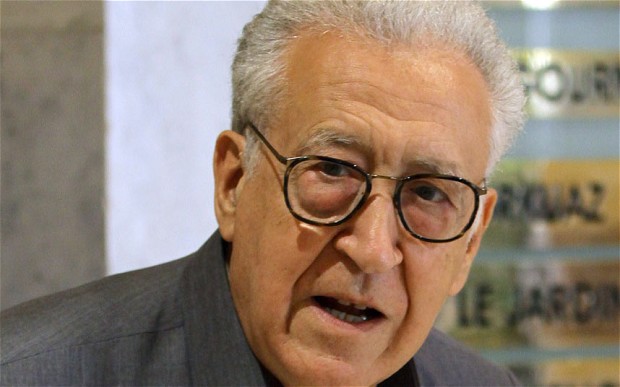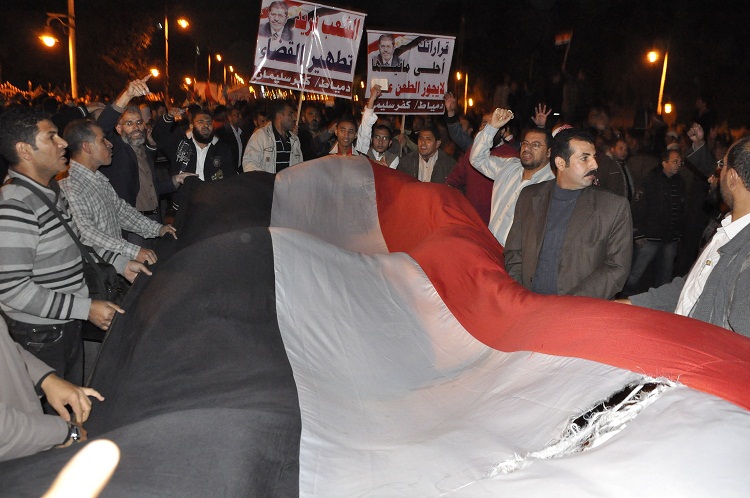
By Justina Poskeviciute
On 21 August, EU foreign ministers called for an emergency meeting in Brussels as a response to the turmoil seen on the streets of Cairo. The EU states have suspended arms export licences for any military equipment that could be potentially used for internal repressions by the Egyptian military. The context in which EU arms companies have operated before the ban cannot be trivialized: in 2011, the total of EU exports of weapons and military equipment to Egypt amounted to more than €300m.
As the conflict in Egypt continues, it is too late to ask whether exerting control on the arms trade is enough to prevent conflicts. Nevertheless, it remains highly important to evaluate the flaws of the ban, ways to improve it, and place it in a broader context of European arms sales.
To begin with, European countries discovered how profitable the arms industry was decades ago and have exploited it since. The UK serves as a textbook example here. British arms companies yielded substantial profits during the 1980s selling weapons to Indonesia. Such profits would have raised no eyebrows had it not come to light that Indonesian dictator Suharto was using these weapons in his campaign of genocide against residents of East Timor. During the same decade, according to the official documents released at the end of 2011, Margareth Thatcher‘s government was also supplying arms to Saddam Hussein in the Iran-Iraq war.
Another example is Germany, a country that had firmly renounced war more than half a century ago. Since the erruption of anti-government protests in 2011, Bahraini protesters and doctors assisting them were being imprisoned and killed. At the same time, German arms exports to the Gulf countries have skyrocketed.
The EU is undoubtedly an active player in the global arms trade arena. According to the Stockholm International Peace Research Institute (SIPRI), out of the top 20 arms exporters of the 2008-2012 period, eight are EU member states (ten, if one includes Norway and Switzerland). The EU is currently the major arms exporter to Saudi Arabia and out of 35 states that have produced cluster munitions – known for their detrimental effects on civilian populations – 16 are in Europe.
Despite the fact that the EU ban on arms sales to Egypt, like its other current embargoes, can be praised for its intentions, its effectiveness remains limited. At best, it can be discussed whether this embargo has prevented exacerbation of the status quo in the country which is still suffering from violence.
The first problem that the EU ban faces is an internal dysfunction. As Mark Bromley, a Senior Researcher at SIPRI, concludes in his research, a thorough assessment is needed of how the EU Common Position on arms exports is implemented country by country. The way export license applications are assessed and previously issued licenses are suspended should be put under scrutiny and best practice applied. In addition, the Common Position should establish adequate mechanisms to assess regions in order to prevent arms shipments to countries that are on the brink of exploding into violence.
The second dysfunction of the EU arms embargo is a structural one. Essentially, there simply cannot be much of a positive change in the horizon if that change does not happen on the global scale, especially as conflicts seem to be emerging in new regions daily. The ratification of the Arms Trade Treaty (ATT), a UNODA (United Nations Office for Disarmament Affairs) initiative which has been prolonged for decades now, would be an important step for the international community to take. The document signed by the UN General Assembly this April aims to globally prohibit arms sales to conflict regions, yet presently it has been signed by 85 states, and ratified only by four.
In addition to the ATT, it is important to make sure that already existing global treaties are signed by all major players and then firmly enforced. For example, it is enough for a single country, the US, to opt out of the Convention on Cluster Munitions, for those cluster bombs to get literally scattered on a number of regions – however, almost never on the state that produces them. While the US is officially wagging its finger at Saudi Arabia for its violations of Human Rights, it is using its other hand to provide the violator with a $640m worth of cluster bombs.
John Pilger, one of the most prominent investigative journalists of our times, in Flying the Flag, Arming the World, his documentary on global arms trade, talks to a number of representatives of arms companies. “Do you sell to anyone?” he asks one of them. The pragmatism with which Pilger’s interviewee responds to this inquiry cannot but shock. The company is not deciding who should be buying its products: “Business is business.”
It is a pity this company sees itself as such a voiceless agent in the system. As long as conflicts make good business, this silence remains extremely profitable.
Pilger made his documentary almost 20 years ago, yet the questions he is asking are as relevant these days. If the global arms trade does not witness any major change, a conflict-less world remains an idea on hold. Even with initiatives like the arms embargo by the EU, there is little hope for a de facto effective response from the international community when violence breaks out in Egypt or in any other unfortunate place.
Justina Poskeviciute is a freelance writer and a political commentator currently living in the Middle East.







